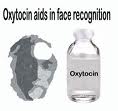Trust they say, is the foundation in building a relationship that bind us into a coherent society.
Distrust is a lesson learned from one’s bad experience in some way and that too much trust to anyone is not healthy because it can breed abuse and deception.
In a Swiss research of 2005, they had found that the feeling of trust is triggered by a brain hormone called oxytocin. A dose of oxytocin into a person’s system would make investors in an investment scheme more willing to hand over their money to strangers.
It may seem unbelievable that there is a hormonal influence in such a delicate situation that you could easily get to trust someone. It comes down probably, that trust is so vital for survival that natural selection has generated a hormonal basis for it.
There is an in dire need to put an end or an antidote in suppressing those deliberate warm feelings brought about by oxytocin in an appropriate circumstances to keep us protected and be reasonable.
In their quest to find the solution Dutch researchers have found the hormone testosterone to be the antidote to oxytocin. In an experiment done by them in Holland on young women, the women were asked to judge the trustworthiness in a string of men’s faces shown in photographs.
The result was that women were significantly less inclined to trust them than when they were given at first a placebo. The researchers concluded that “Testosterone decreases interpersonal trust and in an apparently adaptive manner.”
Testosterone’s effect on social behavior for many mammals, it is used to promote competition for social status and resources. However, the Dutch researchers noted down that for humans, it has shedded light that the hormone seems to motivate rational decision making, cleverness and as an apparent tools for success in a modern society.
Marc Hauser, an evolutionary biologist at Harvard University said that the new finding was “very significant”. It would open the door of more studies to be done in the mechanisms that has guided trust, social relationship, sense of fairness and the behavioral variations of people.
